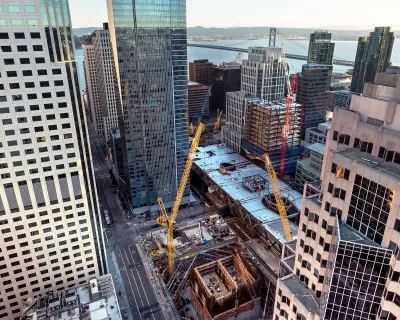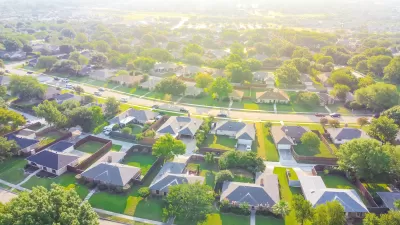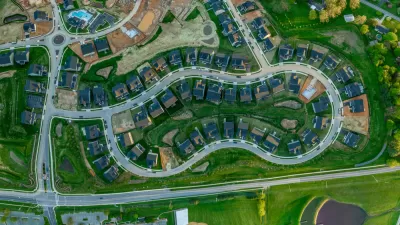Experts blame high land and construction costs and restrictive regulations for San Francisco’s dismal rate of housing construction, which lags behind other fast-growing cities like Austin and Seattle.

San Francisco’s housing crisis is only getting worse. “Exacerbated by the influx of highly compensated tech workers, housing demand has far outstripped supply, prices have skyrocketed and many who work here have been forced to live elsewhere,” writes Adriana Rezal in the San Francisco Chronicle.
Yet the city’s rate of housing construction is far behind that of other growing tech hubs like Austin and Seattle, both of which “approved construction for more than three times as many housing units per person as San Francisco since 2015.”
The article points out that both Seattle and Austin have more space to grow than San Francisco, but San Francisco also has higher construction costs and stricter regulations. “While San Francisco and Austin both had similar population sizes in 2010, with about 800,000 people, Austin permitted over 133,000 units since 2010, while San Francisco permitted only 37,500.” However, “Swift housing production does not guarantee housing costs won’t rise,” as illustrated by Austin’s high housing costs despite its rapid rate of construction.
To alleviate the high costs of housing, experts suggests more public support for missing middle housing, accessory dwelling units, land banking, and other affordable housing solutions. “According to [Joseph Gyourko, a professor of real estate and finance at the Wharton School of the University of Pennsylvania], the key to improving San Francisco’s housing issues is to focus on creating more affordable housing because these units will supply more of the demand than continuing to build units that some residents cannot afford.”
FULL STORY: Here's why Austin and Seattle are building way more housing than San Francisco

Montreal Mall to Become 6,000 Housing Units
Place Versailles will be transformed into a mixed-use complex over the next 25 years.

Planetizen Federal Action Tracker
A weekly monitor of how Trump’s orders and actions are impacting planners and planning in America.

DARTSpace Platform Streamlines Dallas TOD Application Process
The Dallas transit agency hopes a shorter permitting timeline will boost transit-oriented development around rail stations.

Study: 4% of Truckers Lack a Valid Commercial License
Over 56% of inspected trucks had other violations.

Chicago Judge Orders Thousands of Accessible Ped Signals
Only 3% of the city's crossing signals are currently accessible to blind pedestrians.

Philadelphia Swaps Car Lanes for Bikeways in Unanimous Vote
The project will transform one of the handful of streets responsible for 80% of the city’s major crashes.
Urban Design for Planners 1: Software Tools
This six-course series explores essential urban design concepts using open source software and equips planners with the tools they need to participate fully in the urban design process.
Planning for Universal Design
Learn the tools for implementing Universal Design in planning regulations.
City of Mt Shasta
City of Camden Redevelopment Agency
City of Astoria
Transportation Research & Education Center (TREC) at Portland State University
US High Speed Rail Association
City of Camden Redevelopment Agency
Municipality of Princeton (NJ)





























